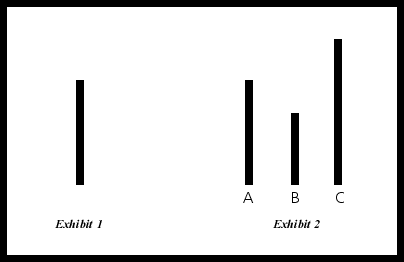The end of happiness?
Photo by Nick Fewings on Unsplash
We’re achieving the impossible; we are becoming more alike. We want the same things: same career, same clothes, same idiosyncrasies. We have the same idols, we want to read the same books, travel to the same places. When asked what makes us happy, we all say the same things.
But we are all fundamentally different. So, it’s improbable for us all to truly want the same things. Perhaps there’s a glitch somewhere. Regardless, this phenomenon is worth diagnosing.
When I look back at my time in boarding school, I marvel at how we all had the same fashion sensibilities. One time we all loved and wore our trousers baggy, at another time, we switched to boot-cut style and then to pencil-styled cuts. I’m tempted to share old photos from boarding school, but I’m resisting the temptation. I was 12 years old and it was normal to want to fit in with my peers, to wear the same things and listen to the same music. In fact, some have proven that an increased sense of belonging for adolescents in school often means higher grades.
But, this young untrained tendency to fit in now has a longer shelf life. It is now uncommon to see people who truly stand out, rooted in their core values, regardless of its popularity. My hypothesis is that this is largely caused by the creation of the global village by social media, compressing the world into one big play ground marked by deepening peer pressures and constant data points for comparison.
Let’s test my hypothesis.
In the 1950s, psychologist Solomon Asch performed an experiment on conformity and social pressure. He assembled groups of participants and showed them a line (exhibit 1), followed by three other lines of different lengths (Exhibit 2).
He then asked the participants to say aloud which of the three lines (exhibit 2) matched the original in length (exhibit 1).
In these research groups however, only one participant was real, the others were planted to give the wrong answers. But the real participant had no idea.
So when Asch asked the question which of the three lines matched the original in length, the planted candidates intentionally gave obviously incorrect answers.
You would expect that the real participant would say what they know is right. But, shockingly, 75 percent of these real participants parroted the clearly incorrect choice even though they knew it was incorrect.
These experiments demonstrated the power of conformity and social pressure. They showed that when placed in groups giving a blatantly wrong answer, most individuals would feel the pressure to set aside what they really believe and trust. They would yield to consensus, and give factually incorrect answers they know to be wrong. In short, they would rather go against the truth, than disagree with the majority.
In Asch’s research, he distinguished between two modes of conformity. In “public conformity,” people will change their answers to fit in, but will revert to their original views in private. But in “private conformity” individuals embrace the crowd’s wrong answer as their own, and internalise it when alone, because they believe the crowd knows better.
What we are witnessing across the world is private conformity perpetuated by powerful algorithms delivered to us via curated content driven by the perception of social proof. This has the capacity to shape beliefs and behaviours–our religious belief, what we wear, who we vote and even what we consider morally acceptable. As one 2020 study found, people on Twitter are more likely to change their voting choice to support the majority sentiment on the social media platform.
As a result, we all have the same templates of happiness. More and more we want the same careers, lifestyles, and experiences as those around us. We conform to fit in. But in denying our individuality, we lose sight of what actually makes us unique and happy at the deepest level.
So how do we escape this pressure to conform? How do we break free from conformity and retain our individuality? The answer lies in cultivating self-knowledge and living out our authentic values.
It is possible to be firmly rooted in who we are, even against the undeniable force of social pressure. We must dig beneath the layers of our conditioning and the expectations of others to know what we truly care about. Because it is only when we understand ourselves can we live and act from a place of authenticity.
We then realize that while everyone loves TV shows, we might be ok reading in a corner. While others want to use their free time for a side hustle, for instance, we might find more meaning in volunteering in our neighborhood. While others want the lavish vacations, we might accept that we gain more fulfilment from staying at home with our family. It is only by knowing what matters to us, can we orient our lives accordingly.
Of course, if your choice means opting out of popular culture, you will create some ripples, and attract questions and judgments from others. But would you rather live in alignment with who you are created to be? Or would you conform for conformity’s sake?
The ball is in your court!



